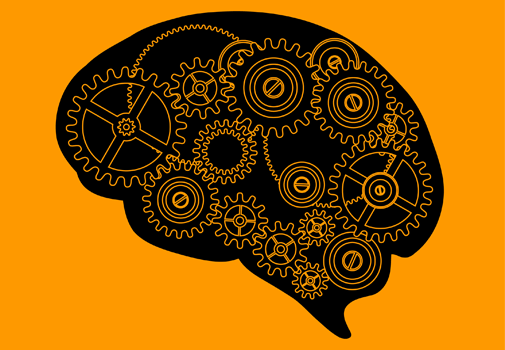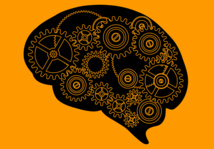Workout
Exercises are one of the most powerful ways to change the behavior of genes. In particular, an aerobic exercise affect not only genes associated with longevity, but also "hormone of the brain’s growth". Studies have shown that physical exercises increase its level and restores memory in the elderly, in fact, increasing the growth of new cells in a particular brain region. Millions of years ago, we won only because we could outrun and / or take more than most other animals. The more we traveled, the more our brains grew. In the end, it helped us to become a modern smart people. And even today, the normal functioning of our brain requires regular physical activity, despite the passage of time and the diseases associated with aging.
Caloric restriction
Another factor, which a gene producing"growth hormone" brain comprises, is a calorie restriction. We finally have a sufficient number of studies that demonstrate the powerful effect of reducing calorie intake by brain function. In January 2009, scientists published the results of the work, which compared two groups of elderly people – one had a calorie intake reduced by 30%, while the other was allowed to eat anything and in any quantity. At the end of the three-month study in the group without restriction diet a slight but pronounced decline in memory function has appeared, whereas subjects on a low calorie diet improved their memory. Knowing that pharmaceutical approaches to treating brain diseases are very limited, the authors concluded that their "results can help in the development of new strategies for prevention of cognitive health in old age." The researchers also noted that people with limited caloric intake marked reduction in the risk of stroke and neurodegenerative disorders, including Alzheimer's and Parkinson's.
Intellectual stimulation
If current knowledge did not tell us that the intellectual stimulation of the brain is right and good for our health, then crosswords, training courses, visits to museums and even reading would not be so popular. And, as it turns out, we strengthen new neural network by causing the brain to work. Just as our muscles are gaining strength through exercise, the brain is driven by intellectual stimulation. It becomes faster and more efficient, and can store more information. It is known that people with higher levels of education has lower the risk of developing Alzheimer's disease, and that is probably a defense mechanism against age-related neurodegenerative disorders produced in the first few decades of life. In addition, some studies show that people with good ability to learn languages has lower risk of dementia.
based on 'Grain Brain' book by David Perlmutter
Exercises are one of the most powerful ways to change the behavior of genes. In particular, an aerobic exercise affect not only genes associated with longevity, but also "hormone of the brain’s growth". Studies have shown that physical exercises increase its level and restores memory in the elderly, in fact, increasing the growth of new cells in a particular brain region. Millions of years ago, we won only because we could outrun and / or take more than most other animals. The more we traveled, the more our brains grew. In the end, it helped us to become a modern smart people. And even today, the normal functioning of our brain requires regular physical activity, despite the passage of time and the diseases associated with aging.
Caloric restriction
Another factor, which a gene producing"growth hormone" brain comprises, is a calorie restriction. We finally have a sufficient number of studies that demonstrate the powerful effect of reducing calorie intake by brain function. In January 2009, scientists published the results of the work, which compared two groups of elderly people – one had a calorie intake reduced by 30%, while the other was allowed to eat anything and in any quantity. At the end of the three-month study in the group without restriction diet a slight but pronounced decline in memory function has appeared, whereas subjects on a low calorie diet improved their memory. Knowing that pharmaceutical approaches to treating brain diseases are very limited, the authors concluded that their "results can help in the development of new strategies for prevention of cognitive health in old age." The researchers also noted that people with limited caloric intake marked reduction in the risk of stroke and neurodegenerative disorders, including Alzheimer's and Parkinson's.
Intellectual stimulation
If current knowledge did not tell us that the intellectual stimulation of the brain is right and good for our health, then crosswords, training courses, visits to museums and even reading would not be so popular. And, as it turns out, we strengthen new neural network by causing the brain to work. Just as our muscles are gaining strength through exercise, the brain is driven by intellectual stimulation. It becomes faster and more efficient, and can store more information. It is known that people with higher levels of education has lower the risk of developing Alzheimer's disease, and that is probably a defense mechanism against age-related neurodegenerative disorders produced in the first few decades of life. In addition, some studies show that people with good ability to learn languages has lower risk of dementia.
based on 'Grain Brain' book by David Perlmutter



















